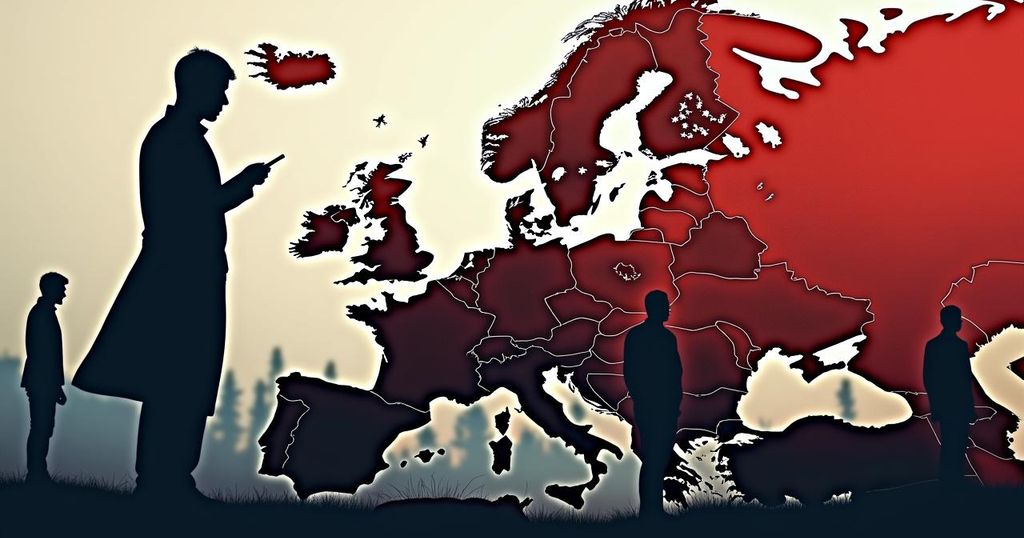Investigating Voice of Europe: A Russian Disinformation Case in Europe

Voice of Europe, a Czech-based web portal, is facing allegations of spreading pro-Russian propaganda and financing European politicians. The Czech government and EU officials are investigating these claims, linking the operation to oligarch Viktor Medvedchuk. Experts point to the rise of extremism in Europe as a factor that increases susceptibility to disinformation.
An online platform based in the Czech Republic, identified as “Voice of Europe,” is under scrutiny for allegedly disseminating pro-Russian propaganda throughout Europe. The Czech government has taken action against the site’s operators, which has also prompted investigations in Poland. Reports suggest that this operation may involve financial contributions to politicians, notably pointing to Petr Bystron of Germany’s far-right AfD party, who has denied any wrongdoing. The Czech Ministry of Foreign Affairs has labeled Voice of Europe as part of a Russian disinformation campaign aimed at undermining Ukraine’s sovereignty and freedom. The oligarch Viktor Medvedchuk, known for his ties to Putin and currently facing treason charges in Ukraine, is believed to be behind the initiative. This operation is reportedly characterized by covert political financing, which is a concerning new trend according to Christopher Nehring, an expert on disinformation. Voice of Europe operates not only a website available in German but also maintains an active presence on social media platforms like Facebook and X, boasting over 180,000 followers. German Interior Minister Nancy Faeser commented on the situation, emphasizing the significant threat posed by Kremlin-sponsored disinformation to democracy. Accusations against the network include cash payments made to European politicians during visits to Prague, with involvement from figures across Germany, France, Poland, Belgium, the Netherlands, and Hungary. This has raised alarms regarding illegitimate Russian influence on the European Parliament. Experts argue that the rise of far-right movements in Europe makes societies more vulnerable to disinformation. Pia Lamberty from Cemas indicates that external attempts at manipulation are expected. Nehring summarized it as a strategy aimed at societal division and covert financial maneuvers. The EU Commission’s Vice President Vera Jourova anticipates more revelations about the extent of foreign political influence, suggesting that current knowledge is only “the tip of the iceberg.”
The situation surrounding Voice of Europe underscores a growing concern over foreign influence in European democracies, especially amid rising populism and extremism. The platform is associated with a broader Russian strategy to destabilize political norms in the West through disinformation and covert funding mechanisms. Involvement of politicians from multiple EU nations in the scandal raises questions about the integrity of European legislative processes.
The investigation into Voice of Europe reveals significant concerns regarding foreign interference in European politics, facilitated through propaganda and potential financial inducements to politicians. This case illustrates the alarming intersections of disinformation, political manipulation, and threats to democratic integrity as outlined by various experts and officials.
Original Source: www.br.de
